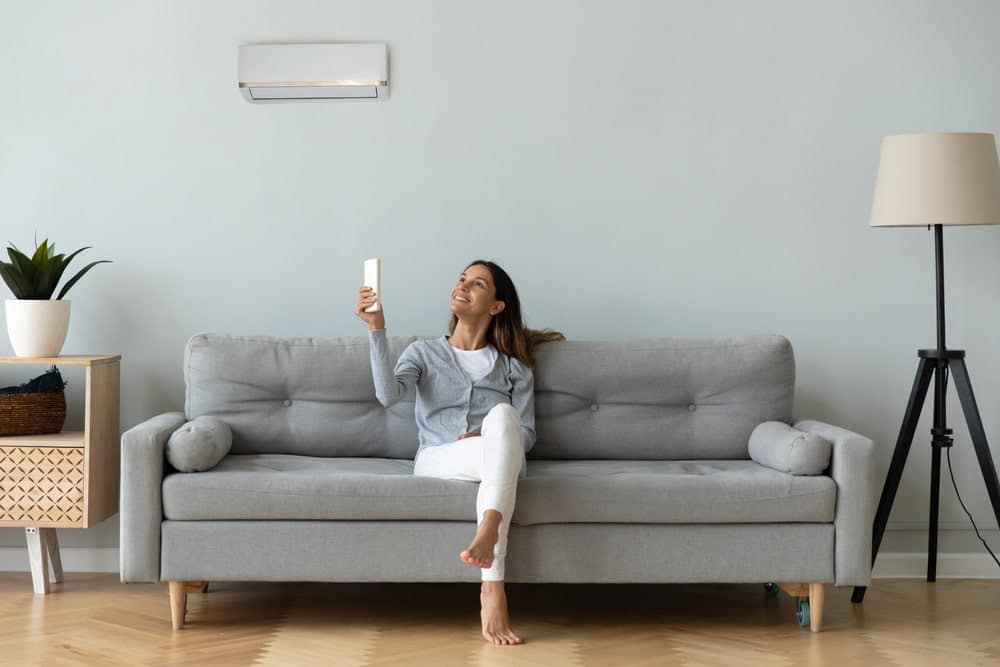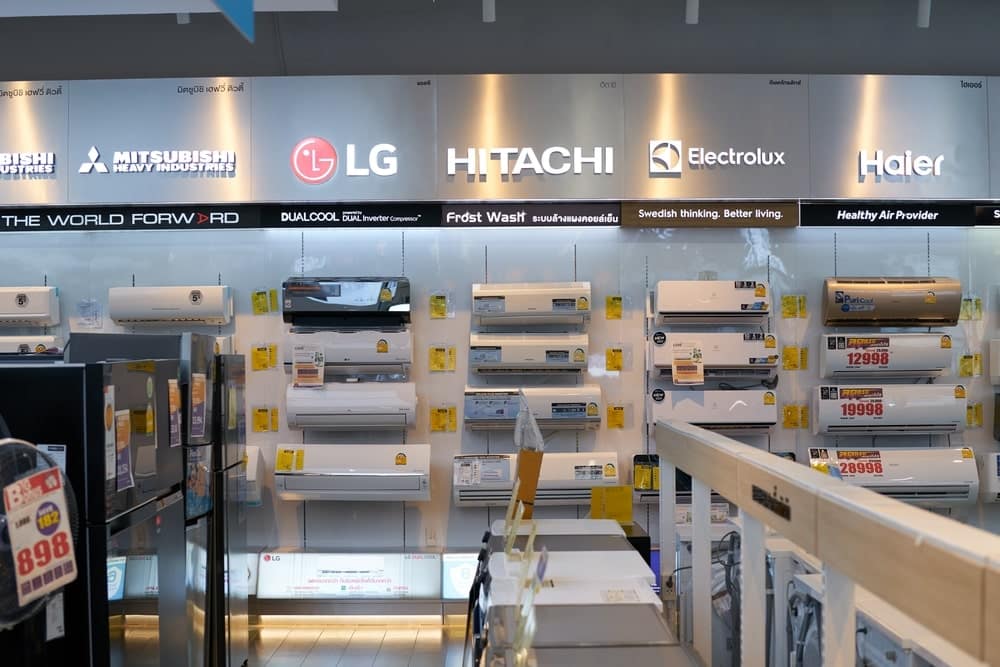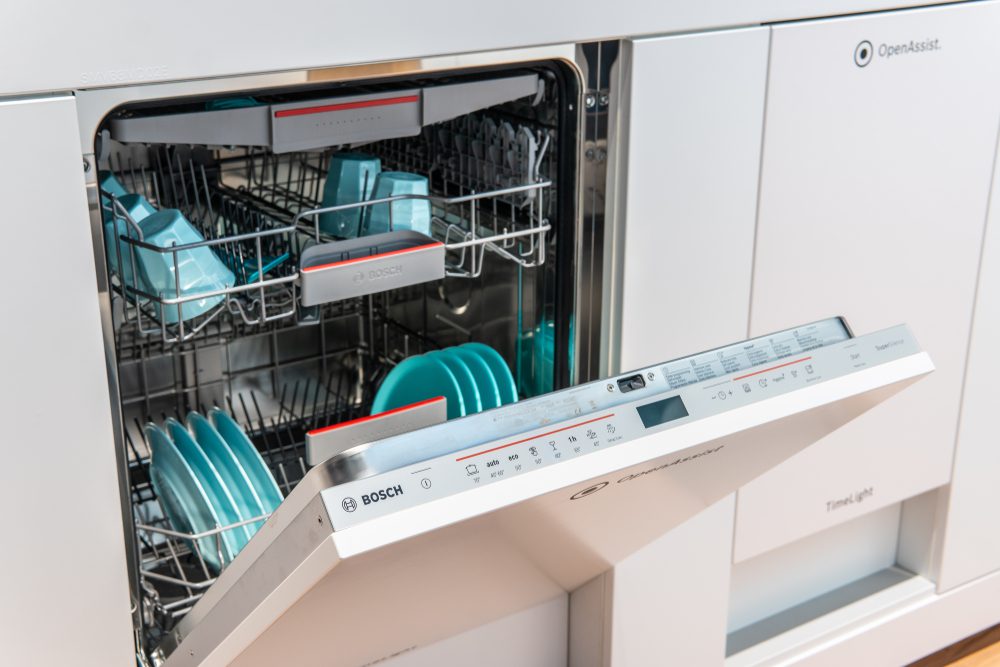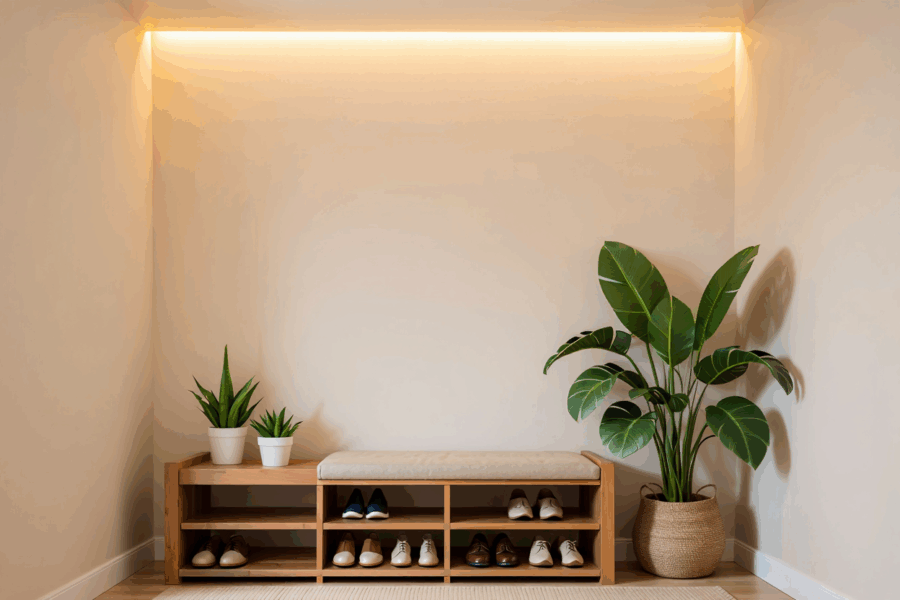What must you know before buying an air conditioner?
Summer is knocking at the door, and while we all love getting tanned and enjoying the outdoors more than ever, indoor comfort is also important. If your air conditioner is older than six years, it may be time to change it. Since this is a super expensive investment, you must pick a new one wisely. If you’re already browsing or have a model in mind, this article is going to be very useful since we talked to a bunch of experts who were kind enough to share some insights with us.
So, enough with chitchat and pompous descriptions, let’s get to business and start with the number one thing you must know before buying an air conditioner:

1. Consider your living space size
One of the most important things to consider before buying an air conditioner is your living space and how big or small it is. For any AC you have two options: portable ones and split-unit air conditioning systems.
A portable unit could be a better option if you rent or have a little space in your home because it can cool you down wherever you go without taking up too much space. If your home is spacious, you can easily opt for a split-unit air conditioning system.
You will have both an interior and an outdoor unit if you choose a split system for your air conditioning. To provide a uniform supply of airflow, the interior unit is carefully positioned higher in the space.
2. Get a professional contractor
It’s settled; you found something that you like, but you’re not 100% sure it’s worth your money. So, what do you do next? Before buying an air conditioner, you look for a company that can help you install it and give you an expert opinion on whether it’s worth buying it, or you can look together for a better model.
Because you want to enjoy your air conditioner’s effectiveness throughout the warm season, it’s crucial to find a reliable company that won’t burn you. Getting a referral from a friend or family member is usually the ideal course of action.
Make sure you get offers from two or three different companies, and ask them to provide specific information. Get the brand and model of the unit if they are in charge of delivering it to make sure it meets your demands.
It’s important to note that most manufacturer warranties have conditions attached to them, such as the need for a certified HVAC contractor to inspect and install the unit. Be sure to read the warranty carefully before proceeding.
3. Look up for the energy efficiency
Since air conditioners use 6% of all the electricity produced in the U.S., every household is spending around $29 billion a year on them. If you don’t want to spend an arm and a leg on electricity bills, before buying an air conditioner it is very important to look up for energy efficiency.
Despite their convenience, portable air conditioners can consume more electricity, particularly when left on all day. On the flip side, split-unit air conditioners are well-known for their exceptional energy efficiency.
To maximize energy economy, check for extra features when looking for an air conditioner. Programmable timers, for instance, let you arrange cooling cycles around your schedule, saving you money on electricity. Keep an eye out for an energy-saving switch that saves you money by turning off the fans when your thermostat shuts off the compressor.
4. Noise level
Be mindful of the AC unit’s decibel rating, particularly if it will be placed in a living room or bedroom, and opt for quieter versions by looking for ones with lower ratings. At lower speeds, variable-speed appliances are often quieter.
5. Think about load calculations
Before buying an air conditioner, it is also very important to do some calculations to know exactly what size is suitable for your living space. And this is especially valid for those who just moved to a new place and this is their first AC.
The right size of air conditioning unit for your home may be determined with the aid of a load calculation. To achieve this, your HVAC professional will compare the cooling capability (measured in BTUs) of your home with its thermal characteristics.
A typical estimate considers the number of appliances, the size of the house, the temperature zone, the kind of roof, the directional orientation, and other relevant details. Verify whether the HVAC contractor you hired also does energy audits. Energy audits and load estimations are frequently available combined at a discount.

6. Buy your air conditioner from a legitimate seller
Before buying an air conditioner, make sure it’s brand new and is also from a legitimate seller. You know to avoid any possible scams. And this is especially valid if you order it online.
Examine the retailer’s return policy in detail and look up customer reviews before making a purchase. This can help you determine the dependability of the supplier and the level of quality of their items. In the end, purchasing from a trustworthy supplier ensures an easy transaction and peace of mind.
Even if your AC system is probably going to come with its remote, it won’t hurt to have another one just in case. This AC universal remote control is compatible with 98% of air conditioners worldwide, including all the popular brands. Plus, it’s super affordable at just $9.99.
7. Think about annual maintenance as well
You should discuss a maintenance plan with your contractor once your new air conditioner is installed. Routine maintenance will guarantee that your warranty is still valid and that the cooling device operates as efficiently as possible. You should be able to select an appropriate maintenance program with the assistance of your contractor.
A/C maintenance packages are available for most professional home service firms once a year, and depending on the company, they aren’t that expensive either!
8. Check your budget
If you reached this far by reading the article, then you probably understood how things work and what you have to do before buying an air conditioner. Besides all these factors you must consider, it is also important to check your budget to see how much you can spend on the device.
Many people put affordability first, and that’s understandable, but if you want a more durable air conditioner, you should know that those that tend to be less pricey aren’t exactly good regarding energy consumption.
For instance, even though a split-unit air conditioner is more costly, it can save energy over time. Recall that, in terms of health and well-being, air conditioning in the summer may be just as crucial as heating in the winter.
Are you looking for more interesting tips and tricks for your nest? You’re in the right place! Here, the whole crew at Home Team ensures you have something nice and interesting to read every week. You just need to hit that subscribe button and let us take care of the rest of the details.
Ah! And before you go check out why is smart to invest in durable home appliances that may never break.









